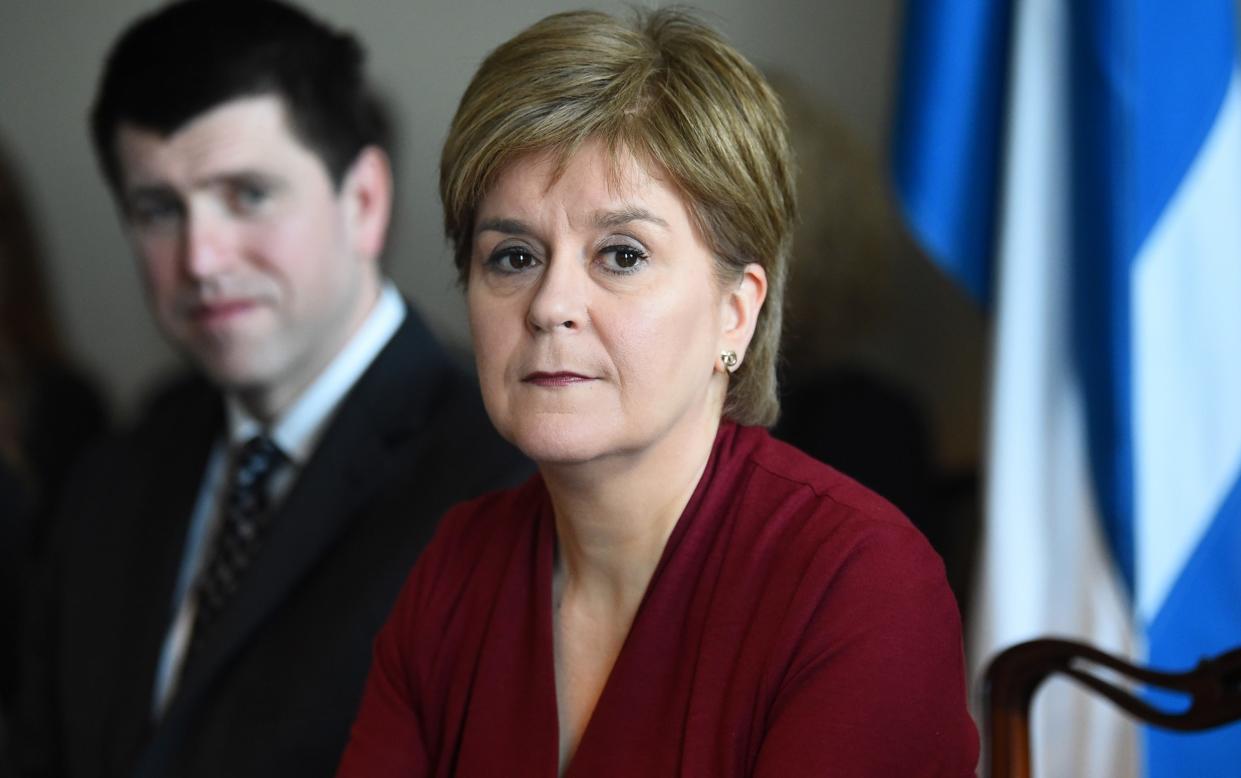The SNP won’t be the only scalp claimed by trans ideology

- Oops!Something went wrong.Please try again later.
- Oops!Something went wrong.Please try again later.
- Oops!Something went wrong.Please try again later.
- Oops!Something went wrong.Please try again later.
- Oops!Something went wrong.Please try again later.
If anyone was in any doubt about Keir Starmer’s determination to let nothing stand in the way of a Labour general election victory, they should pay attention to a little-reported comment he made in Scotland last week. “Gender recognition will not be one of the priorities of the incoming government”, he told an interviewer in the context of the ongoing debate doing so much damage to the SNP during its ongoing leadership contest.
On the one hand, the Labour leader was merely reflecting the views of the vast majority of UK citizens, that reform of existing gender identity laws should be pretty far down the list of any government’s priorities. On the other, given the strength of feeling among many of his MPs and on the left in general, by dismissing the importance of the issue he was risking accusations of treachery, transphobia and surrender to the right.
In the same interview he made a subtle criticism of the behaviour of his own party’s MSPs who voted for the SNP’s Gender Recognition Reform Bill at Holyrood last year: “What’s happened in Scotland is a reminder that if you want change, you have to carry the public with you.”
Starmer, in other words, has joined Rishi Sunak in the growing club of politicians who recognise the toxicity of the trans debate for mainstream politicians. All he has to do now is persuade the rest of his party to join him.
Few could have foreseen the dramatic consequences on the SNP leadership of its long-standing commitment to reform gender recognition law so that the requirement for a gender dysphoria diagnosis was removed from the equation. Under the proposed new law, anyone, whether or not they suffer from the medically recognised condition, could choose to identify legally as a member of the opposite sex simply by declaring it to be so.
The pitfalls of this policy were obvious, and repeated loudly by gender critical feminists concerned about the loss to women of exclusively single-sex facilities like changing rooms, prisons and women’s refuges. But SNP ministers ploughed on regardless, confident that whatever they believed must ultimately be reflected by the broader populace.
That turned out not to be the case, and when the UK government used an obscure section of the Scotland Act to veto the Bill after it had been passed by the Scottish Parliament, there was no public outrage about this “betrayal” of devolution. When Nicola Sturgeon announced her resignation last month it was widely accepted that her defeat on gender recognition played a significant part in her decision.
Yet one of the leading candidates to replace her, Humza Yousaf, rarely misses an opportunity to champion the legislation, partly to create a clear dividing line between him and his main opponent, committed Christian Kate Forbes, but also to emphasise his nationalist credentials and his determination to oppose UK interference in Holyrood affairs in principle.
If he wins this contest, he will have little to fear from the Scottish Labour Party on the issue, since Anas Sarwar’s party was even more enthusiastically in support of the measure than the SNP MSPs themselves. This is what Starmer was referring to in his comments last week. And who can blame him for failing to mask his frustration?
An obsession with trans self-ID has not emerged at the top of certain politicians’ agendas as a result of some kind of grassroots campaign; it is very much a top-down project, injected into ministers’ in-trays by highly paid, highly-professional lobbyists working on behalf of organisations like the trans rights group Stonewall. It is Starmer and Sunak who are choosing to take the temperature of ordinary members of the public and have therefore concluded that a government’s precious time should be focused on other things.
Will others in his party learn that lesson? Sarwar and his Welsh counterpart, Mark Drakeford, the first minister of Wales, are entirely committed to the trans agenda. Sarwar made a fundamental – and rare – political error by whipping his MSPs in favour of the Bill, even after crucial amendments his party proposed to prevent sex offenders changing gender, for example, were defeated. He therefore has no political or moral ground for attacking the SNP on the most egregious and self-inflicted error during its time in office.
Drakeford meanwhile has demanded the same powers as Holyrood in order to duplicate a piece of legislation that was vetoed by the UK government. It is unlikely, however, that the residents of Wales’s valleys are on board with this new agenda.
The end result, the punchline, if you will, of Sturgeon’s blinkered but unblinking devotion to gender ID reform was her resignation. Humza Yousaf looks set to follow that self-destructive example. Sarwar and Drakeford are itching to follow suit, heedless to public opinion. How many more politicians will sacrifice their reputations, and even their careers, on this issue before they choose to follow Keir Starmer’s example?

